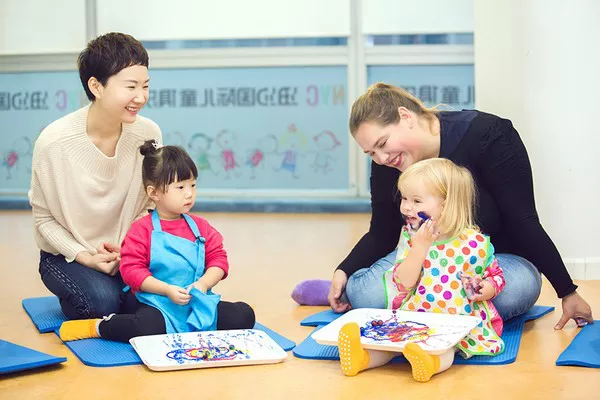A good couple relationship is often considered a cornerstone of a fulfilling and happy life. While the concept of a “good” relationship can be subjective and vary from one couple to another, certain psychological principles and practices are widely recognized as essential for building and maintaining a healthy and satisfying partnership. This article delves into the key elements that contribute to a strong couple relationship, drawing on psychological research and theories to provide a comprehensive understanding of what makes a relationship thrive.
The Foundations of a Good Couple Relationship
1. Communication
Open and Honest Dialogue: Effective communication is fundamental to any successful relationship. Couples who openly and honestly share their thoughts, feelings, and concerns are better equipped to understand each other and address issues as they arise. This transparency helps to build trust and prevent misunderstandings.
Active Listening: Active listening involves fully concentrating on what your partner is saying, rather than just passively hearing their words. It requires empathy and attentiveness, allowing partners to validate each other’s feelings and perspectives. Active listening fosters a deeper emotional connection and enhances mutual understanding.
2. Trust and Respect
Building Trust: Trust is a crucial component of a healthy relationship. It is built through consistent behavior, reliability, and honesty. Trust allows partners to feel secure and confident in the relationship, enabling them to be vulnerable and open with each other.
Respecting Boundaries: Respecting each other’s boundaries is essential for maintaining a balanced and respectful relationship. This includes honoring personal space, preferences, and individual needs. Respect helps to create an environment where both partners feel valued and appreciated.
3. Emotional Support
Providing Support: Emotional support involves offering comfort, encouragement, and understanding during challenging times. Couples who provide emotional support to each other create a safe and nurturing environment where both partners feel cared for and validated.
Empathy: Empathy is the ability to understand and share the feelings of your partner. Demonstrating empathy involves acknowledging and validating your partner’s emotions, which strengthens the emotional bond and fosters a deeper connection.
4. Conflict Resolution
Healthy Conflict Resolution: Conflicts are a natural part of any relationship, but how they are handled can significantly impact the relationship’s health. Effective conflict resolution involves addressing disagreements calmly and constructively, seeking common ground, and finding mutually acceptable solutions.
Avoiding Destructive Patterns: Couples should be mindful of destructive conflict patterns, such as blame, criticism, and defensiveness. These patterns can escalate conflicts and damage the relationship. Instead, focusing on collaborative problem-solving and maintaining a positive attitude can help resolve conflicts more effectively.
5. Shared Goals and Values
Aligning Goals: Shared goals and values contribute to relationship satisfaction by providing a sense of purpose and direction. Couples who have common aspirations and values are more likely to experience a sense of unity and commitment in their relationship.
Supporting Each Other’s Goals: Supporting each other’s individual goals and ambitions is also important. Encouraging personal growth and celebrating achievements fosters a sense of partnership and mutual respect.
6. Quality Time and Affection
Spending Quality Time Together: Quality time involves engaging in meaningful activities and experiences with your partner. This time spent together helps to strengthen the emotional connection and create lasting memories. Prioritizing quality time demonstrates that the relationship is valued and important.
Physical Affection: Physical affection, such as holding hands, hugging, and cuddling, plays a significant role in maintaining emotional closeness. Affectionate gestures help to reinforce the bond between partners and contribute to relationship satisfaction.
See Also: How to Communicate with Your Boyfriend?
7. Individual Growth and Self-Care
Supporting Personal Growth: A good couple relationship encourages individual growth and self-improvement. Partners who support each other’s personal development and respect individual needs contribute to a healthier and more balanced relationship.
Practicing Self-Care: Self-care involves taking care of one’s own physical, emotional, and mental well-being. When both partners prioritize self-care, they are better equipped to contribute positively to the relationship and maintain a sense of balance and fulfillment.
8. Commitment and Dedication
Demonstrating Commitment: Commitment involves a willingness to invest time, effort, and energy into the relationship. Demonstrating commitment through consistent actions and behaviors reinforces the importance of the relationship and fosters a sense of security and stability.
Navigating Challenges Together: Couples who navigate challenges and obstacles together build resilience and strengthen their bond. Facing difficulties as a team reinforces the partnership and helps to develop a deeper sense of connection and trust.
Psychological Theories and Concepts
1. Attachment Theory
Secure Attachment: Attachment theory posits that early relationships with caregivers influence how individuals form attachments in adult relationships. Individuals with secure attachment styles are more likely to have positive and healthy relationships, characterized by trust, intimacy, and emotional support.
Insecure Attachment: Insecure attachment styles, such as anxious or avoidant attachment, can impact relationship dynamics. Understanding and addressing these attachment styles can help couples build stronger and more fulfilling connections.
2. Love Languages
Understanding Love Languages: Dr. Gary Chapman’s concept of love languages highlights that individuals have different ways of expressing and receiving love. The five love languages—words of affirmation, acts of service, receiving gifts, quality time, and physical touch—can help couples understand and meet each other’s emotional needs.
Adapting to Each Other’s Love Languages: Recognizing and adapting to each other’s love languages can enhance relationship satisfaction and foster a deeper emotional connection. Couples who communicate in ways that resonate with their partner’s love language are more likely to feel valued and understood.
3. Positive Psychology
Fostering Positivity: Positive psychology emphasizes the importance of focusing on strengths, positive experiences, and overall well-being. Applying principles of positive psychology, such as gratitude, optimism, and kindness, can enhance relationship satisfaction and contribute to a more fulfilling partnership.
Building Resilience: Positive psychology also highlights the importance of building resilience and coping skills. Couples who practice resilience and maintain a positive outlook are better equipped to handle challenges and sustain a strong and healthy relationship.
FAQs
Q1: How can couples improve communication in their relationship?
A1: Couples can improve communication by practicing active listening, expressing themselves openly and honestly, and addressing issues as they arise. It is also helpful to set aside dedicated time for meaningful conversations and to use “I” statements to express feelings without placing blame.
Q2: What are some effective strategies for resolving conflicts in a relationship?
A2: Effective strategies for resolving conflicts include staying calm and composed, focusing on the issue at hand rather than personal attacks, and seeking common ground. It is important to approach conflicts with a collaborative mindset and to work together to find mutually acceptable solutions.
Q3: How can couples maintain trust and respect in their relationship?
A3: Couples can maintain trust and respect by being reliable, honest, and consistent in their actions. It is also important to respect each other’s boundaries and to show appreciation and consideration for each other’s needs and feelings.
Q4: What role does emotional support play in a healthy relationship?
A4: Emotional support plays a crucial role in a healthy relationship by providing comfort, encouragement, and understanding during challenging times. It helps partners feel valued and cared for, and it strengthens the emotional bond between them.
Q5: How can couples balance their individual needs with the needs of the relationship?
A5: Couples can balance individual and relationship needs by supporting each other’s personal growth and self-care while also prioritizing quality time and shared goals. Open communication and mutual respect are key to maintaining this balance.
Conclusion
A good couple relationship is characterized by effective communication, trust, respect, emotional support, and shared goals. By understanding and applying psychological principles, couples can build and maintain strong and fulfilling connections. Prioritizing these elements and addressing challenges with empathy and dedication contribute to a healthy and satisfying partnership. Ultimately, a good relationship is built on a foundation of mutual respect, support, and commitment, and it evolves through continuous effort and growth.
Related topics:



























